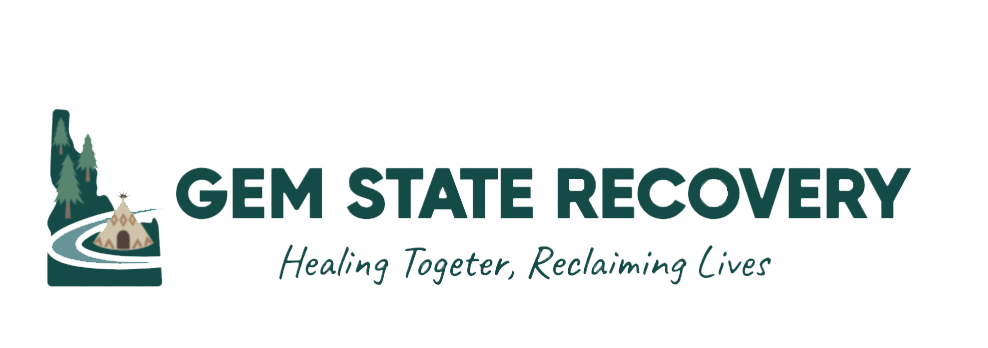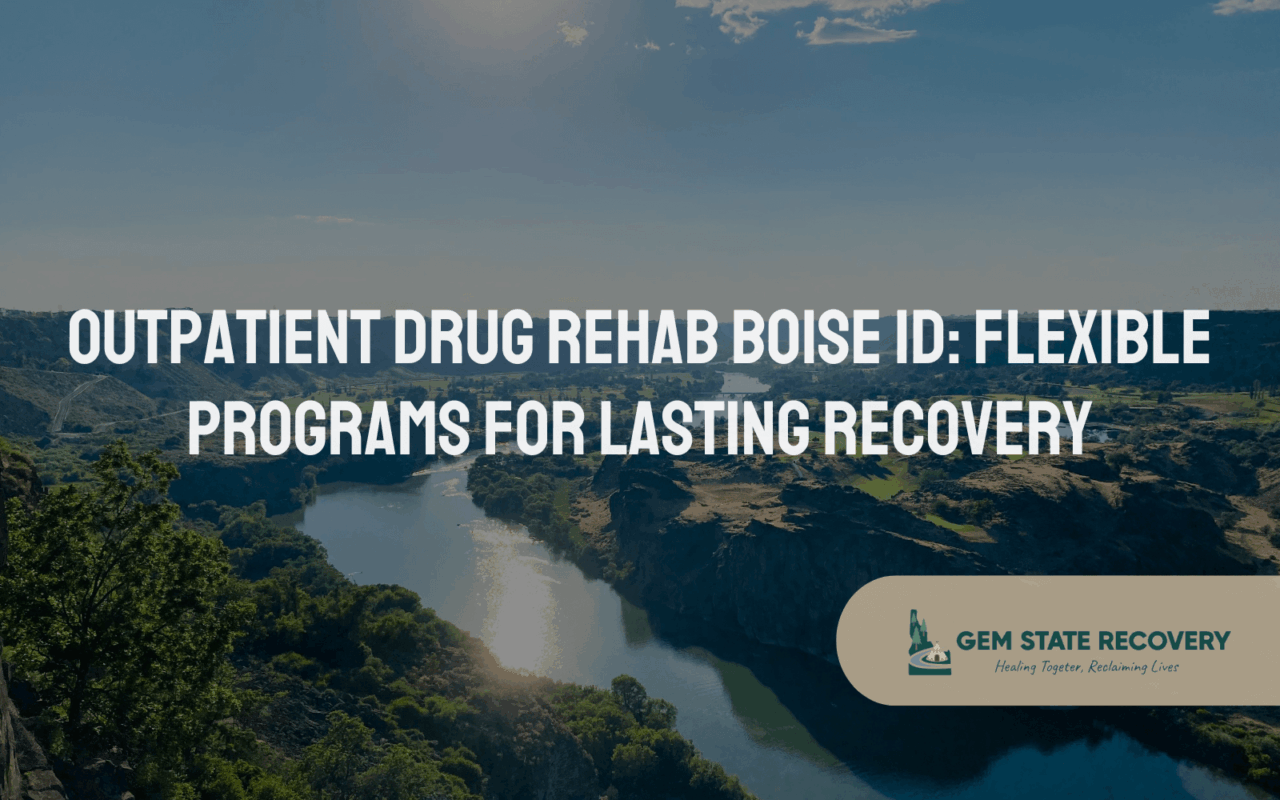Understanding Outpatient Drug Rehab Boise ID
Finding the right path to recovery from substance abuse can feel overwhelming, especially when you’re trying to balance treatment with work, family, and other responsibilities. For many people in the Treasure Valley, outpatient drug rehab Boise ID programs offer the perfect solution—providing comprehensive addiction treatment while allowing you to maintain your daily commitments and stay connected to your support system at home. If you or someone you love is struggling with substance abuse or co-occurring mental health conditions, understanding the full range of treatment options available through outpatient drug rehab Boise ID facilities can be the first step toward lasting recovery. These flexible programs combine evidence-based therapies, medical support, and personalized care plans to address the complex nature of addiction and help you build a foundation for long-term sobriety.
Understanding Outpatient Drug Rehab in Boise, Idaho
Outpatient drug rehab Boise ID programs are designed for individuals who need structured addiction treatment but don’t require 24-hour medical supervision. These programs allow you to attend therapy sessions, counseling appointments, and group meetings several times per week while continuing to live at home and fulfill your daily responsibilities. The flexibility of outpatient drug rehab Boise ID makes it an ideal choice for people who have completed inpatient treatment and need continued support, those with strong home support systems, individuals managing work or family obligations, or people in the early stages of addiction who don’t require intensive residential care. Boise’s outpatient facilities offer various levels of care intensity, ensuring that each person receives treatment matched to their specific needs and recovery stage.
Comprehensive Treatment Services Available
Quality outpatient drug rehab Boise ID centers provide a full continuum of care that addresses every stage of the recovery journey. Understanding these different services can help you or your loved one choose the right program for your unique situation.
Detox and Intervention Assistance
Recovery often begins before formal treatment, and many outpatient drug rehab Boise ID facilities offer specialized services to help individuals take those crucial first steps:
- Medical detoxification support provides supervised withdrawal management to ensure safety and comfort as substances leave your system, with medical professionals monitoring vital signs and managing withdrawal symptoms that can range from uncomfortable to potentially dangerous depending on the substance involved.
- Intervention services help families plan and execute professional interventions when a loved one is resistant to seeking help, providing trained specialists who can facilitate difficult conversations and guide the person toward accepting treatment in a compassionate, non-confrontational manner.
- Assessment and evaluation services determine the appropriate level of care needed, evaluating physical health, mental health status, substance use history, and social circumstances to create a personalized treatment recommendation that addresses the whole person.
- Connections to medical detox facilities ensure that individuals who need higher levels of medical supervision during withdrawal can access appropriate inpatient detox services before transitioning to outpatient care, creating a seamless continuum from detox through ongoing treatment.
Inpatient and Outpatient Treatment Options
The best outpatient drug rehab Boise ID providers understand that recovery isn’t one-size-fits-all, which is why they offer multiple treatment settings:
- Inpatient treatment provides 24-hour care in a residential setting for individuals who need intensive support, structure, and medical supervision, offering a safe environment away from triggers and substances where people can focus entirely on healing and building recovery skills.
- Outpatient treatment allows you to receive counseling, therapy, and support while living at home and maintaining your work, school, or family responsibilities, typically involving several hours of treatment per week scheduled around your existing commitments.
- Flexible transitions between levels of care ensure that as your needs change throughout recovery, your treatment can adjust accordingly, allowing people to step down from residential care to outpatient services or step up to more intensive support if challenges arise.
- Individualized scheduling accommodates different lifestyles and obligations, with many outpatient drug rehab Boise ID facilities offering evening and weekend appointments for people who cannot attend during traditional business hours.
Partial Hospitalization Programs and Residential Treatment
For those who need more structure than traditional outpatient care but don’t require full residential treatment, specialized programs offer middle-ground options:
- Partial Hospitalization Programs (PHP) provide intensive treatment for several hours each day, typically five to seven days per week, allowing individuals to return home each evening while receiving nearly the same level of clinical support as inpatient care, making this an excellent step-down option after residential treatment.
- Residential treatment offers a structured living environment with round-the-clock support, therapeutic programming throughout the day, and a peer community of others in recovery, creating an immersive healing experience that removes you from triggering environments and unhealthy relationships.
- Dual diagnosis treatment addresses co-occurring mental health disorders alongside substance abuse, recognizing that conditions like depression, anxiety, PTSD, and bipolar disorder often fuel addiction and must be treated simultaneously for lasting recovery.
- Holistic approaches incorporate wellness activities like nutrition counseling, exercise, mindfulness practices, and recreational therapy alongside clinical treatment, addressing physical, emotional, and spiritual dimensions of recovery.
Evidence-Based Therapies in Boise Outpatient Programs
Outpatient drug rehab Boise ID centers employ scientifically proven therapeutic approaches that address the psychological, emotional, and behavioral aspects of addiction. These evidence-based modalities form the foundation of effective treatment:
EMDR (Eye Movement Desensitization and Reprocessing)
EMDR therapy helps individuals process traumatic experiences that often underlie substance abuse:
- Trauma resolution addresses painful memories and experiences that may have triggered or perpetuated substance use, helping people reprocess these memories in a way that reduces their emotional charge and power over current behavior.
- Reduced emotional distress helps minimize the anxiety, flashbacks, and intrusive thoughts associated with trauma without requiring extensive talk therapy about traumatic details, making it accessible for people who struggle to verbalize their experiences.
- Breaking the cycle of using substances to numb emotional pain from past trauma creates space for healthier coping mechanisms and emotional regulation skills that support long-term sobriety.
- Integration with addiction treatment allows therapists to address both PTSD symptoms and substance abuse patterns simultaneously, recognizing the interconnected nature of trauma and addiction.

CBT (Cognitive Behavioral Therapy)
Cognitive Behavioral Therapy is a cornerstone of outpatient drug rehab Boise ID programming:
- Identifying thought patterns that lead to substance use helps individuals recognize the cognitive distortions and negative self-talk that trigger cravings and relapse, bringing unconscious patterns into conscious awareness.
- Developing coping strategies provides practical tools for managing cravings, stress, and triggers without turning to substances, equipping people with specific techniques they can use in real-world situations.
- Behavioral modification helps replace destructive habits with positive behaviors that support recovery, creating new neural pathways and automatic responses that reinforce sobriety rather than substance use.
- Addressing co-occurring disorders like anxiety and depression through CBT techniques reduces symptoms that might otherwise lead to relapse, treating the full spectrum of mental health challenges rather than addiction alone.
DBT (Dialectical Behavior Therapy)
DBT skills are particularly valuable for individuals struggling with emotional regulation:
- Mindfulness training teaches individuals to stay present and aware rather than reacting impulsively to cravings or emotional distress, creating a pause between trigger and response where conscious choice becomes possible.
- Distress tolerance builds capacity to sit with uncomfortable emotions without needing to escape through substance use, recognizing that feelings are temporary and manageable without chemical intervention.
- Emotion regulation skills help people identify, understand, and manage intense emotions in healthy ways, reducing the overwhelming feelings that often precede relapse.
- Interpersonal effectiveness improves communication and relationship skills that support recovery, helping individuals set boundaries, ask for help, and navigate conflicts without resorting to substances.
Life Skills Development
Practical life skills training is an essential component of outpatient drug rehab Boise ID programs:
- Financial management helps individuals learn budgeting, debt management, and responsible money handling to reduce stress and avoid financial triggers that might lead to substance use.
- Employment support includes resume building, job search strategies, interview preparation, and workplace communication skills that help people secure and maintain stable employment during recovery.
- Time management teaches individuals how to structure their days productively, balance responsibilities, and create healthy routines that support sobriety rather than leaving dangerous amounts of unstructured time.
- Independent living skills prepare people to manage housing, nutrition, self-care, and daily responsibilities without relying on substances to cope with adult obligations.
Motivational Interviewing
This client-centered approach helps individuals find their internal motivation for change:
- Exploring ambivalence acknowledges the mixed feelings many people have about giving up substances, creating space to examine both the benefits and costs of continued use without judgment.
- Building intrinsic motivation helps individuals identify their own reasons for change rather than relying on external pressure, creating more sustainable commitment to recovery.
- Strengthening commitment to treatment goals occurs through guided conversation that helps people articulate their values, recognize discrepancies between current behavior and desired outcomes, and develop confidence in their ability to change.
- Respecting autonomy while providing support creates a collaborative therapeutic relationship where individuals feel empowered rather than coerced, increasing engagement and retention in treatment.
Medication Management
Many outpatient drug rehab Boise ID programs include comprehensive medication services:
- Medication-assisted treatment (MAT) for opioid or alcohol addiction uses FDA-approved medications like buprenorphine, naltrexone, or acamprosate to reduce cravings and withdrawal symptoms, significantly improving treatment outcomes and retention.
- Psychiatric medication management addresses co-occurring mental health conditions with appropriate medications for depression, anxiety, bipolar disorder, or other psychiatric symptoms that complicate recovery.
- Regular monitoring ensures medications are effective, well-tolerated, and adjusted as needed throughout the recovery process, with prescribers who understand the complex interplay between addiction and mental health treatment.
- Education and support helps individuals understand their medications, manage side effects, and recognize the role of medication as one tool within a comprehensive treatment approach rather than a standalone solution.
Mentoring Programs
Peer support and mentoring add invaluable personal connection to clinical treatment:
- Recovery coaching from individuals who have successfully maintained long-term sobriety provides hope, practical wisdom, and real-world strategies that only lived experience can offer.
- Accountability partnerships create supportive relationships where individuals can share struggles, celebrate successes, and receive encouragement from someone who understands the recovery journey firsthand.
- Community connection helps people build sober social networks and find their place in the recovery community, reducing isolation and creating a sense of belonging that supports lasting change.
- Role modeling demonstrates that long-term recovery is possible and shows what life in sobriety can look like, providing tangible examples of the possibilities that await those who commit to the recovery process.
The Benefits of Choosing Outpatient Drug Rehab in Boise
Selecting outpatient drug rehab Boise ID offers numerous advantages for individuals seeking recovery while maintaining their daily lives. The flexibility to attend treatment sessions while continuing work or school means you don’t have to put your life completely on hold to get help. Staying connected to family and home support systems throughout treatment reinforces your recovery efforts with real-world practice managing triggers and stressors in your natural environment rather than in isolation. The Boise community offers unique benefits for recovery, including a supportive recovery community with numerous 12-step and alternative support group meetings, access to outdoor recreation and natural beauty that supports wellness and stress management, and a growing network of quality treatment providers who understand the specific challenges faced by Idaho residents. Outpatient drug rehab Boise ID programs typically cost significantly less than residential treatment while still providing comprehensive evidence-based care, making recovery more accessible to people without extensive insurance coverage or financial resources.
Conclusion
If you’re considering outpatient drug rehab Boise ID for yourself or a loved one, taking that first step to reach out for help is often the hardest part—but it’s also the most important. Recovery is possible, and the compassionate professionals at Boise’s outpatient treatment centers are ready to help you create a personalized plan that fits your unique needs, circumstances, and goals. Whether you’re struggling with alcohol, opioids, stimulants, or other substances, and whether addiction exists alone or alongside mental health challenges, outpatient drug rehab Boise ID programs offer the comprehensive, flexible care you need to build a foundation for lasting sobriety. The combination of evidence-based therapies, medical support, practical skills training, and peer connection creates a robust treatment approach that addresses every dimension of addiction and recovery. Don’t wait for things to get worse before seeking help. The right outpatient drug rehab Boise ID program can meet you where you are and guide you toward the healthy, fulfilling life you deserve. Contact us today to learn more about your options, verify your insurance coverage, and begin your journey toward lasting recovery. Its as simple as calling 1 (208) 314-3107 or visiting our website. Your future self will thank you for having the courage to take this first step today.





